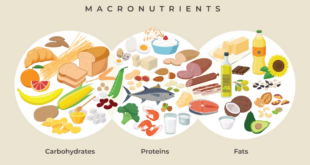Introduction
Gut health is fundamental to overall wellness, influencing digestion, immunity, and even mental health. A balanced diet rich in diverse nutrients plays a pivotal role in maintaining a healthy gut microbiome—the community of microorganisms residing in our digestive tract. This article delves into the significance of gut health and how dietary choices impact digestive function and overall well-being.
Understanding Gut Health
The gut microbiome consists of trillions of bacteria, fungi, and other microbes that inhabit the gastrointestinal tract. These microorganisms are essential for various bodily functions, including:
Digestion: Breaking down complex carbohydrates and synthesizing certain vitamins.
Immune Function: Training and regulating the immune system to distinguish between harmful pathogens and non-threatening entities.
Mental Health: Communicating with the brain through the gut-brain axis, influencing mood and cognitive functions.
An imbalance in this microbial community, known as dysbiosis, has been linked to conditions such as inflammatory bowel disease, irritable bowel syndrome, allergies, and mental health disorders.

The Impact of Diet on Gut Health
Diet plays a crucial role in shaping the gut microbiome. A balanced diet that includes a variety of nutrients supports the growth of beneficial bacteria, contributing to a diverse and healthy microbiome. Key dietary components influencing gut health include:
Fiber-Rich Foods: Whole grains, fruits, vegetables, and legumes provide dietary fiber that serves as food for beneficial gut bacteria, promoting their growth and activity.
Prebiotics and Probiotics: Prebiotics are non-digestible fibers that stimulate the growth of healthy bacteria, while probiotics are live beneficial bacteria found in fermented foods like yogurt and kimchi. Together, they enhance gut health by maintaining a balanced microbial environment.
Healthy Fats: Incorporating sources of omega-3 fatty acids, such as fatty fish, supports the integrity of the gut lining and may reduce inflammation.
Limiting Processed Foods: Reducing the intake of high-fat, high-sugar, and heavily processed foods helps prevent dysbiosis and supports overall gut function.
Benefits of a Healthy Gut
Maintaining a healthy gut through balanced nutrition offers several benefits:
Enhanced Digestion: Efficient breakdown and absorption of nutrients, reducing symptoms like bloating and constipation.
Strengthened Immunity: A balanced gut microbiome supports immune system development and function, aiding in the defense against pathogens.
Improved Mental Health: The gut-brain axis facilitates communication between the gut and the brain, influencing mood and cognitive functions. Studies suggest that a healthy gut may reduce the risk of depression and anxiety.
Lifestyle Factors Supporting Gut Health
Beyond diet, several lifestyle habits contribute to optimal gut health:
Regular Physical Activity: Exercise promotes regular bowel movements and supports a diverse microbiome.
Adequate Sleep: Quality sleep influences the balance of gut bacteria and overall digestive health.
Stress Management: Chronic stress can disrupt the gut microbiome, leading to digestive issues and other health concerns. Practices like mindfulness and relaxation techniques can help mitigate stress effects.
Conclusion
Gut health is integral to overall wellness, affecting digestion, immunity, and mental health. A balanced diet rich in fiber, prebiotics, probiotics, and healthy fats supports a diverse and thriving gut microbiome, leading to improved digestive function and enhanced well-being. Incorporating these dietary and lifestyle practices can foster a healthy gut, contributing to a healthier life.
For more information on maintaining a healthy gut, visit 365Tastes.
 Tastes | Live healthy every day
Tastes | Live healthy every day

